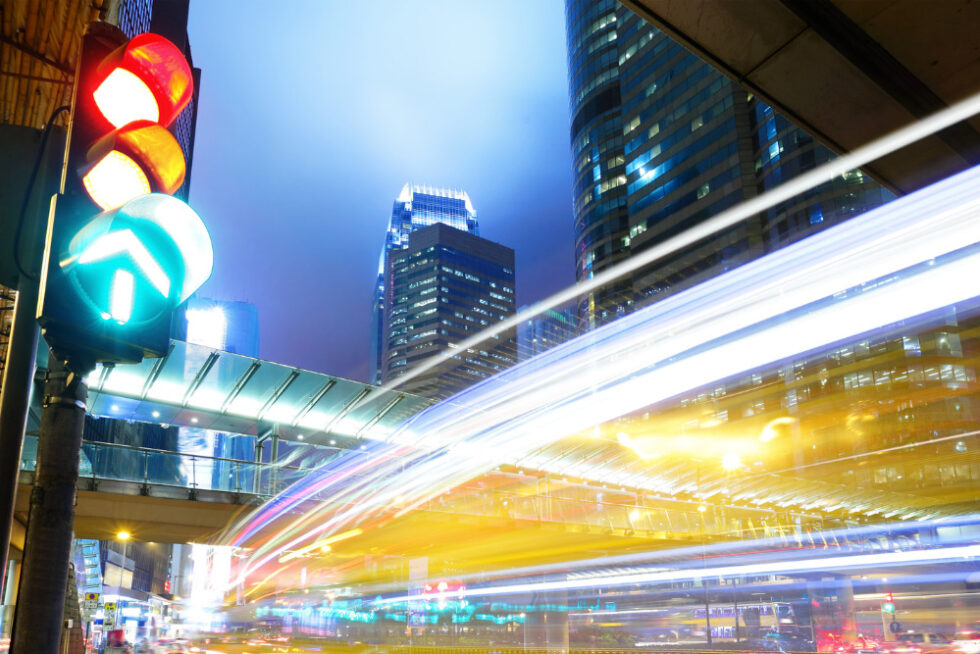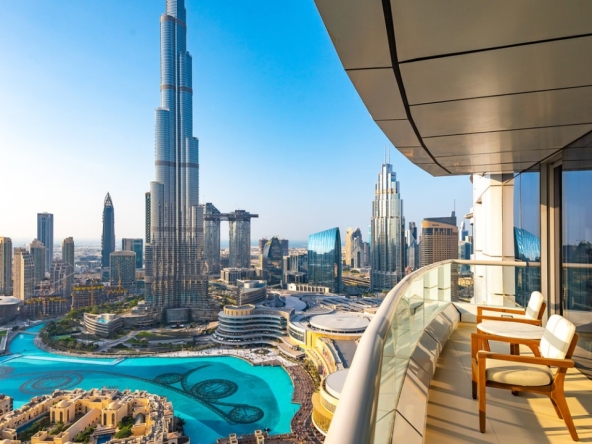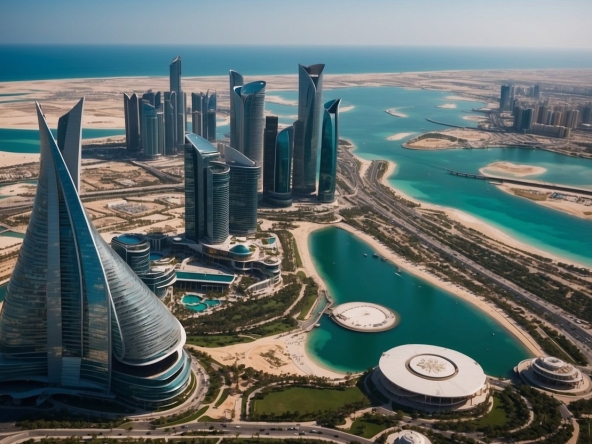Dubai, the vibrant and cosmopolitan city in the United Arab Emirates (UAE), has achieved a remarkable feat in traffic management. According to multiple reports and studies, Dubai has emerged as one of the world’s least congested cities. With its innovative infrastructure projects, comprehensive public transport system, and forward-thinking policies, Dubai has transformed its traffic landscape and set an example for cities around the globe. In this article, we will delve into the reasons behind Dubai’s success in managing traffic congestion, the impact of its initiatives on the economy and quality of life, and the lessons other cities can learn from its experience.
Dubai’s Impressive Traffic Index Rankings
Dubai’s position as one of the least congested cities worldwide has been firmly established through various studies and reports. Navigation company TomTom’s 2022 traffic index report analyzed 390 cities across 56 countries, covering over 543 billion kilometers of road networks. In terms of the average travel time for a 10 km distance in the Central Business District (CBD), Dubai outperformed major global counterparts, including Los Angeles, Montreal, Sydney, Berlin, Rome, and Milan. While the average travel time in these cities was 21 minutes, Dubai boasted an impressive journey time of just 12 minutes.
The success of Dubai’s traffic management is not limited to its CBD. In urban areas, Dubai recorded a time of 9 minutes per 10 km, with an average speed of 59 kilometers per hour (kph). This achievement can be attributed to the city’s concerted efforts in expanding its road network, introducing cycling tracks, and implementing comprehensive transportation policies.

Infrastructure Efforts and Cycling Tracks
Dubai’s commitment to enhancing its infrastructure has played a crucial role in alleviating congestion and improving travel times. The Roads and Transport Authority (RTA) has spearheaded numerous initiatives aimed at expanding the road network and providing efficient transport options. The introduction of cycling tracks has not only encouraged eco-friendly commuting but also contributed to reducing traffic congestion. These measures have significantly enhanced the overall traffic flow and accessibility within the city.
The RTA’s dedication to infrastructure development has resulted in Dubai being globally recognized for its road quality for five consecutive years. The city’s roads have consistently ranked at the top, ensuring smooth and efficient transportation for residents and visitors alike.
Economic Benefits and Road Safety
Dubai’s comprehensive approach to traffic management has yielded significant economic benefits. The cumulative value of time and fuel savings from 2006 to 2022, due to the RTA’s projects, exceeded AED 262 billion ($71.3 billion). These savings have a direct impact on the economy, enhancing productivity and competitiveness. Additionally, the collaboration between the RTA and Dubai Police has led to a remarkable improvement in road safety. The number of road incident-related fatalities per 100,000 population has dropped from 22 cases in 2006 to a mere 1.9 cases in 2022.
Mattar Al Tayer, the RTA’s Director-General and Chairman, emphasized the role of Dubai’s comprehensive public transport system in reducing traffic congestion and private vehicle dependence. The system has witnessed a substantial increase in passenger ridership, soaring from 163 million in 2006 to 621.4 million in 2022. This significant shift towards public transportation has not only eased traffic congestion but also contributed to a greener and more sustainable city.
Dubai’s Infrastructure Projects and Traffic Management Policies
Dubai’s success in traffic management can be attributed to its forward-thinking infrastructure projects and traffic management policies. The city has continuously invested in developing a comprehensive public transport system, including an extensive metro network, tram system, and bus services. These initiatives have provided residents and visitors with viable alternatives to private vehicles, reducing the overall traffic volume on roads.
The RTA has also implemented intelligent transportation systems (ITS) to optimize traffic flow and reduce congestion. These systems utilize advanced technologies, such as smart traffic lights, real-time traffic monitoring, and adaptive signal control, to regulate and streamline the movement of vehicles. By leveraging data and analytics, Dubai has been able to identify traffic patterns, predict congestion hotspots, and implement proactive measures to mitigate traffic bottlenecks.
Sustainable Mobility and Future Plans
Dubai’s commitment to sustainability extends to its transportation sector. The city aims to become a global leader in sustainable mobility by promoting electric and hybrid vehicles, encouraging carpooling and ridesharing, and expanding its cycling infrastructure. These initiatives not only reduce traffic congestion but also contribute to lower carbon emissions and improved air quality, creating a healthier environment for residents and visitors.
Looking ahead, Dubai has ambitious plans to further enhance its traffic management systems. The city is investing in advanced technologies, such as autonomous vehicles and smart traffic management solutions, to optimize transportation efficiency. By embracing innovation and leveraging data-driven insights, Dubai aims to maintain its status as one of the world’s least congested cities and continue to provide seamless mobility experiences.

Lessons for Other Cities
Dubai’s experience in managing traffic congestion holds valuable lessons for other cities facing similar challenges. The key takeaways include:
- Invest in Infrastructure: Prioritize the development and expansion of road networks, public transportation systems, and cycling infrastructure to improve traffic flow and accessibility.
- Embrace Technology: Leverage intelligent transportation systems and real-time data analytics to optimize traffic flow, identify congestion hotspots, and implement proactive measures.
- Promote Sustainable Mobility: Encourage alternatives to private vehicles, such as public transportation, ridesharing, and cycling, to reduce traffic volume and carbon emissions.
- Collaborate for Safety: Foster partnerships between transportation authorities and law enforcement agencies to enhance road safety and reduce accidents.
- Prioritize Economic Benefits: Recognize the economic advantages of efficient traffic management, including time and fuel savings, increased productivity, and improved competitiveness.
By adopting these strategies and tailoring them to their unique contexts, cities can work towards alleviating traffic congestion and creating more livable and sustainable urban environments.
Conclusion
Dubai’s remarkable achievement as one of the world’s least congested cities is a testament to its visionary approach to traffic management. Through extensive infrastructure projects, comprehensive transportation policies, and sustainable mobility initiatives, the city has transformed its traffic landscape, benefiting residents, businesses, and the environment. Dubai’s success story serves as an inspiration for other cities grappling with traffic congestion, offering valuable lessons in infrastructure development, technology adoption, and collaborative efforts. As Dubai continues to pioneer innovative solutions, it remains a shining example of effective traffic management on a global scale.



